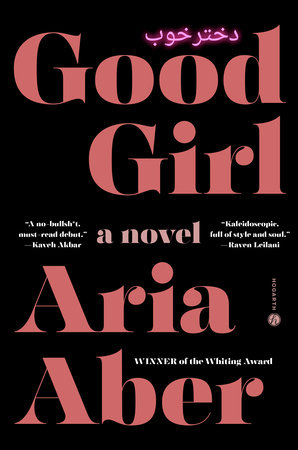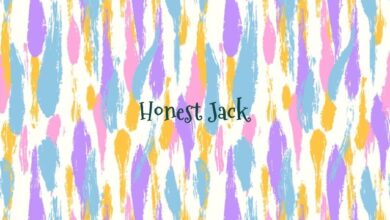Good Girl

The club wasn’t really called the Bunker, but that’s what I will call it, because that’s how we experienced it: a shelter from the war of our daily lives, a building in which the history of this city, this country, was being corroded under our feet, where the machines of our bodies could roam free and dream. A place like the Bunker attracted an eclectic mixture of gestalts, and I liked them all. But mostly I liked the strange bald men whose political affiliations, checking-account balances, and sexual preferences you couldn’t categorize. They were from Detroit or Freiburg or Dublin; they spoke of Rilke and shared the last dregs of amphetamines with you at sunrise. Their eyes were large and full of secrets and a bit watery by the end of the night. They were the first to come and the last to leave. They were always here, the ones who actually used the dark rooms. You could tell by their leathery faces that they were professionals at this business of techno, of living a double life in the city’s underbelly, because they truly didn’t care what anyone thought. No audience for them, no performance: No, this was their life. Yet there was a tenderness to their carelessness. They had been partying since before my birth, since before the wall even fell. And, most important, they never judged you, no matter what kind of fool you made of yourself.
*
None of my friends were there. Not that I had many—I dumped Felix, my first boyfriend, the second I moved back from school, because technically I wasn’t allowed to have a boyfriend, and he was bad in bed. And Melanie had moved to London to study textile design. The only people left were Anna and Romy, with whom I’d also gone to school and who moved to Berlin for university. Lately they’d been telling me to slow down, but they didn’t understand the accelerating feeling in my chest, this race car of a heart that I couldn’t stop. Anna had promised to come to the Bunker, but her text message predicted an arrival time of an hour from now. So I did a line in the bathroom with this peroxide-blond girl whom I would never see again, then went upstairs to the other dance floor, where the house beat was slick with synth and soulful samples. I stood at the bar, hoping that my aloneness was not betraying my insecurity. I played with my hair, trying to look arrogant and unapproachable.
I noticed his smell before I saw him: pink pepper and smoke. There he stood, Marlowe Woods, all six feet three inches of him, wearing a battered leather jacket. I usually liked my men blond and severe or dark as tar, but Marlowe was neither, somewhere smack in the middle, with a square jaw and dimpled chin, the nose of an emperor. Greasy hair that fell in almost girlish waves down to his chin. I kept my composure when he put his hand on my shoulder, even though I was almost nauseous with attraction. He was chewing gum, and I noticed a small spider tattoo pulsing on the side of his neck. He stood with his back to the bartender, his elbows leaning on the counter. Looked at me from the side with a sly smile.
“Hey. I’m Marlowe.” Everybody knew who he was: the American writer who always carried speed. He had published a book in his early twenties, which was translated into a few languages. I had seen a picture of him in a magazine feature on Berlin artists. Though I couldn’t remember the details, I’d never forgotten his face in that glamorous photograph. Windswept and serious, a cigarette between his lips. The picture alone had exercised a strange pull on me; his blue eyes pierced the page with intelligence. I had seen him before, in some club by the water, where the sun turned the dance floor into a laceration of light and the sound was happier than here. Of course, he hadn’t noticed me. He was a prince who moved through rooms as if they belonged to him, surrounded by a large group of friends, among them his blond girlfriend, who in my memory always wore a Sonic Youth shirt.
“I’m Nila.” I shook his clammy hand, a surprisingly formal gesture.
“By the way, you lost this.” He stretched out his palm and, in the strobing lights, I saw a small gray lighter.
“Not mine.”
“Yes, it probably fell out of your pocket.” I shook my head, and he laughed, his smile all gap-toothed and dimpled.
“Well, I think you should keep it.” His breath warm against my neck, he slid the lighter into my tote bag, and there was this feeling of a pinprick in my heart.
“Okay,” I said, unable to meet his gaze.
“Do you have speed?”
“Can I buy you a drink first?”
*
Twenty minutes later he pushed hard against me in the bathroom stall, everything sticky with grime and sweat. He stubbed out his cigarette on the wall right next to my face, and I believed I could smell the faint sulfur of scorched hair.
“I’m sorry, it’s just so tight in here,” he said. Against the visual noise of stickers and tags, I studied the rest of him: V-neck of his green shirt, golden necklace with a coin that refracted the light. So this was him, the glamorous man from the magazine. Grinning, he blew on my face, and I calculated how far I was ready to go in exchange for a line, but after he got out the little folded-up flyer of speed from his pants pocket, he only asked me where I was from.
“Berlin,” I said, which was the truth. But he did the dreadful thing I always feared people would do—he asked again, he asked where I was really from, and because my head was a structureless melting pot of serotonin and my jaw was behaving like a carousel horse, or because even here I was afraid, I said, “My parents are from Greece,” which was a lie but seemed like an approximate explanation for my dark and aquiline face, my unruly curls. Sometimes I lied that I was Colombian; sometimes I was from Spain or Israel. I didn’t want to speak about what had brought my parents over from Kabul or tell him that he had probably met my uncle driving a taxi in which he sat in the back seat feeling sorry for that dark man in front of him broken by all the things he had to leave behind. Or say that I was not even allowed to be here, that my being here was a big, ugly secret. Here, truth had no place. And anyway, nine times out of ten, it was easier to tell a lie than to watch pity distort someone’s face. I didn’t want to be pitied. He seemed intrigued.
“Greece,” he repeated. “Interesting.” The speed was wet and potent, and when I snorted the line, the burning sensation unblocked my sinuses, and I forgot the low yank of the lie.
“I do this only for research,” I sniffled, and he laughed. It was so easy to make men laugh. It was the easiest thing in the world. “I’m writing a paper on it for class.”
“I’m American. I would believe anything,” he said with that gentle lull in his voice.
“I know.”
“Well, then, I need to come up with other facts about myself to surprise you.”
“Why is your German so good?” I countered.
“Because I am . . . I had a girlfriend. And I studied it in high school.”
“Really? You retained your high school German?” I willfully ignored the part about the girlfriend.
“And my mother was German, technically speaking.”
“Technically.” I tried to compute that this man had a German mother—where was her family from, what flavor of German was she?
“My turn. Why is your English so good?”
“Bilingual school,” I said, and let him believe what he wanted to believe. I knew what it made me sound like—someone who came from money. When I returned his flyer, my hand lingered on his for a moment too long. We stared at each other, charged by the disorderly pulse of the air. I took the square red-tinted sunglasses from his head and put them on; the lenses were smudged. He touched the hollow between my collarbones, and I closed my eyes to the warmth and subdued techno drifting from the dance floor, snippets of Spanish and German in adjacent booths.
“You’re very beautiful,” he said. I started laughing and threw my head back, because I had never been beautiful. I had a strong, regal look to my face due to my high cheekbones and my almond-shaped eyes, and maybe I was young, but I knew what beauty was. I had a different quality, what my mother had wanted to slap out of me and my father spat at. What men love. Beauty was a tragic virtue often abused because we are fooled by it, but I emanated something darker, something uglier. Like a fraught hunger for life, like a voice that said I would do anything.
“In America we say thank you to compliments,” he said, and grabbed the sunglasses from my face.
I grinned. “Thank you, sir.”
__________________________________
From Good Girl by Aria Aber. Copyright © 2025 by Aria Aber. Published by Hogarth, an imprint of Random House, a division of Penguin Random House LLC.

